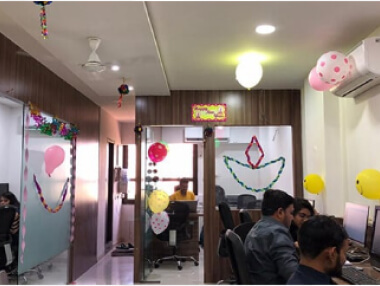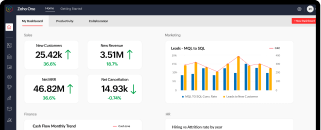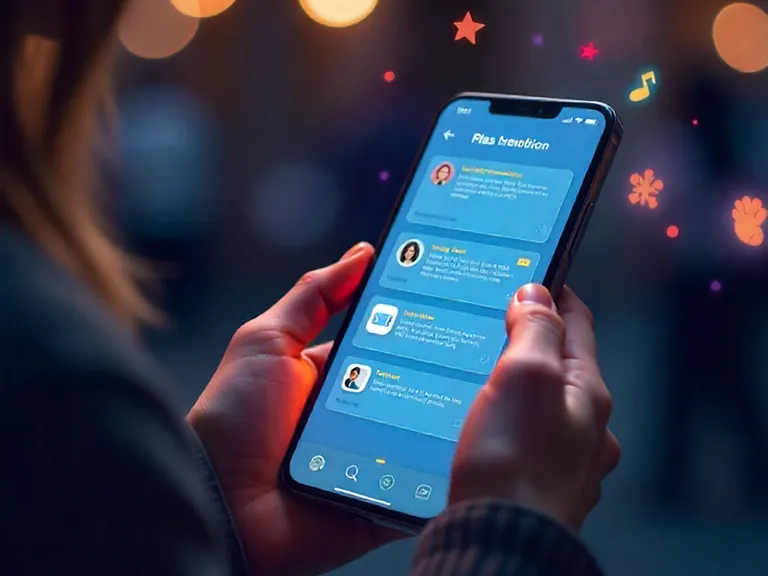The Shopify ecosystem is rapidly growing with over 8,000+ apps helping merchants expand functionality and improve store performance. Yet, many businesses still require tailored solutions that go beyond off-the-shelf apps. That’s where custom Shopify app development comes in. Whether you want to optimize inventory, integrate new marketing tools, or streamline customer experiences, building your own app can transform how your eCommerce business operates.
But how exactly does an idea become a functional, published app on the Shopify App Store? Let’s dive into the 7-step development process that professional agencies like Xceptive Solutions LLP follow to turn your concept into reality.
1. Idea Validation and Market Research
Every successful app starts with a validated idea. Before writing a single line of code, you need to understand the pain points your app will solve. The Shopify ecosystem already has thousands of tools so identifying gaps in the market is crucial.
Here’s how our team approaches idea validation:
- Conduct competitor analysis on the Shopify App Store.
- Interview target merchants to understand their workflow issues.
- Analyze app reviews to find unmet needs or common complaints.
- Evaluate technical feasibility and Shopify API availability.
At this stage, we also define your app’s core value proposition the “why” behind its existence. This clarity ensures that the development process remains goal-focused and user-driven.
2. Planning and Feature Roadmap
Once the idea is validated, it’s time to plan the app’s features, architecture, and roadmap. A well-structured plan saves time, reduces errors, and sets the foundation for scalability.
The planning phase typically includes:
- Defining user roles and permissions (store owners, customers, admins).
- Mapping key app functionalities dashboard, analytics, integrations, etc.
- Choosing the right Shopify API endpoints and data flow logic.
- Creating wireframes and flow diagrams for UI/UX clarity.
Pro Tip: Keep your first version (MVP) simple. Add only must-have features that solve the primary problem, and expand later based on user feedback.
3. UI/UX Design and Prototyping
Design plays a pivotal role in how users perceive and adopt your app. A cluttered interface can reduce engagement, while a clean, intuitive layout builds trust and usability.
Our UI/UX process at Xceptive Solutions LLP includes:
- Designing low-fidelity wireframes and converting them into high-fidelity prototypes.
- Ensuring mobile-responsive layouts for embedded app experiences.
- Implementing Shopify Polaris design system for consistent UX.
- Conducting usability tests to gather early feedback.
According to Forrester Research, investing in user-centric design can boost conversion rates by up to 200%. That’s why professional design isn’t optional it’s essential.
4. Development and API Integration
This is where the magic happens. Once designs are approved, developers begin building the app using Shopify’s API and SDKs. Depending on your goals, you can create either a public app (available on the App Store) or a custom app (private to your store).
| App Type | Description | Best For |
|---|---|---|
| Public App | Listed on Shopify App Store; accessible to all merchants. | Startups and SaaS providers targeting a wide user base. |
| Custom App | Developed for internal business use or specific client needs. | Established stores looking for tailor-made solutions. |
At Xceptive, we typically use Node.js, React, and GraphQL APIs for robust, high-performance apps. We also focus on data security, speed optimization, and scalable architecture to ensure long-term success.
5.Testing and Quality Assurance
No matter how great your app idea is, it must pass rigorous testing before launch. We perform multiple test cycles to ensure every feature works flawlessly under different conditions.
Testing covers:
- Functional testing (verifying each feature).
- Integration testing (Shopify API and external services).
- Performance testing (load time, server response).
- Security and data validation checks.
- Cross-browser and device testing for consistent UI.
We also use tools like Postman for API testing and Shopify CLI for app preview validation. This phase helps eliminate bugs and ensure your app meets Shopify’s approval standards.
6.App Store Submission and Approval
Once your app is polished and ready, it’s time to publish it to the Shopify App Store. This process involves adhering to Shopify’s app review guidelines, preparing documentation, and submitting the app for review.
Here’s what we include during submission:
- App title, description, and SEO-optimized listing content.
- Clear screenshots and demo videos.
- Pricing plans and merchant support information.
- Privacy policy and terms of use documentation.
Approval typically takes between 5 to 10 business days, depending on Shopify’s review queue. Once approved, your app goes live for thousands of merchants to explore and install.
7. Post-Launch Support and Optimization
Launching your app is just the beginning. Continuous updates, performance monitoring, and customer support are key to long-term success. At Xceptive, we offer Shopify App Maintenance & Support to ensure your app stays secure, updated, and competitive.
We gather merchant feedback, fix reported issues, and roll out new features based on usage data. According to Statista (2025), apps updated frequently retain up to 35% more users than those with infrequent updates emphasizing the importance of post-launch engagement.
Conclusion
Building a Shopify app isn’t just about coding it’s about solving real business problems. With a structured approach, you can bring your idea to life and make it accessible to thousands of merchants worldwide. Partnering with experts like Xceptive Solutions LLP ensures every step from ideation to launch is handled with precision, creativity, and scalability in mind.
Ready to build your custom Shopify app? Get in touch with Xceptive Solutions LLP today and let’s make your idea the next success story on the Shopify App Store.
FAQs: Shopify App Development Process
How long does it take to develop a Shopify app?
Typically, 4–8 weeks depending on complexity and feature requirements.
What’s the cost of custom Shopify app development?
Costs vary but generally range between $2,000–$10,000 USD for MVPs.
Can I publish a private app instead of a public one?
Yes, Shopify allows custom apps to be used privately within your store.
Do I need coding skills to manage the app?
No we design apps with intuitive dashboards and admin tools.
What tech stack do you use?
We primarily use Node.js, React, GraphQL, and Shopify CLI.
Is the app hosted on Shopify’s servers?
No, apps are hosted externally but integrated securely with Shopify APIs.
What are common app categories on Shopify?
Marketing, sales, analytics, inventory, and customer service tools.
Can I monetize my Shopify app?
Yes, through paid subscriptions, in-app purchases, or freemium models.
What happens after the app is approved?
It’s published on the Shopify App Store for global access and downloads.
How does Xceptive Solutions LLP support app updates?
We offer continuous monitoring, feature updates, and merchant support post-launch.









